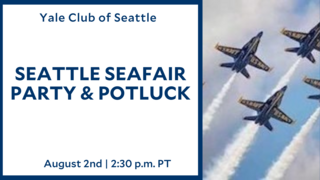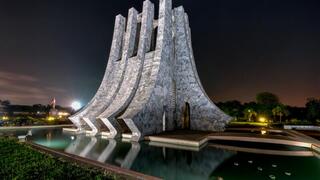What is the biggest lesson you learned during your time at Yale and how does that shape who you are today?
While at Yale I learned that it was okay to ask for help. I attended an inner-city secondary school that did not prepare me for the rigors of an Ivy League education. During my time at Yale, I took advantage of the writing center and quantitative tutoring as well. I learned that even though success in my inner-city high school in some ways required hyper-independence, to succeed at Yale, I had to admit my limitations and use the resources around me to excel academically. Now as a civil rights lawyer at the Legal Defense Fund, I can bring that same spirit of interdependence with both my colleagues and my clients and through harnessing our collective resources, reach outcomes that we could never have achieved separately.
How did your time at Yale shape your identity?
My time at Yale helped me develop myself as a leader. I think about the small seminars and class sizes that characterized so many of my courses. It required me to speak in class and share my thoughts and ideas. It instilled in me a value that my voice and my words matter. I think about being around so many brilliant students and professors who challenged me intellectually. It instilled in me a sense that I can tackle seemingly insurmountable problems. Yale helped bring out the confidence that lay dormant in me. In a society that often tells working-class Black folks that our voices do not matter, Yale served as a countervailing force to help me realize that I too had meaningful contributions that would benefit those around me.
 What does belonging mean to you and how did you find a sense of belonging at Yale and after?
What does belonging mean to you and how did you find a sense of belonging at Yale and after?
Belonging to me means the freedom to live authentically. While at Yale I was blessed to find best friends where I could be myself without needing to censor my cultural, racial, or socioeconomic background. After Yale, I continued to seek our communities whether it be churches, volleyball leagues, or travel groups where I could live out my values of being authentic without fear or shame.
How have you stayed engaged with the Yale community since graduating?
I currently serve on the board of the Yale Club of Washington, D.C., and work to foster belonging to members of the alumni community who reside in the DMV. In addition, I interview high school students applying to Yale College. Finally, I provide mentorship to current Yale students and recent alums through both Cross Campus and other Yale mentorship programs.
What advice do you wish you heard during your time at Yale?
When I attended Yale, I struggled with imposter syndrome. In what felt like overnight, I went from a high school that served as a Teach for America volunteer site to sitting in gothic classrooms next to students who graduated from elite boarding and college preparatory schools. I wish someone had told me that I should take pride in growing up in a resource-scarce environment and making it to Yale. I wish that someone had told me that it was okay that I was on full financial aid. I wish someone had told me that I didn’t have to obfuscate my class background in certain social settings. I wish I had been told that I belonged at Yale just as much as the student who had legacy status. I wish that I had been told how Yale is a bubble and that once I left New Haven, I would see new leadership skills and insight arise in myself that may not be as evident when you are surrounded by such a high concentration of scholars and future global leaders.
 What were your favorite spaces at Yale or in New Haven? Why?
What were your favorite spaces at Yale or in New Haven? Why?
Though I am not Latino, I really enjoyed the La Casa Cultural Center on Crown Street. I danced in Ballet Folklorico Mexicano de Yale and spent many hours in La Casa organizing our costume closet and bonding with my teammates. La Casa felt like such a safe space and a home away from home given that I grew up in a majority Latino community in Los Angeles. I also loved the restaurant scene in New Haven. We had access to so many different types of cuisines which were both tasty and affordable for college students.
What aspects of Yale do you feel like you talk about most often to people who didn’t go to school here? Why?
I love to talk about the friends that I made in college who had such different academic interests and who were all equally brilliant. I think about my time in Ballet Folklorico and how on the same Mexican folk-dance team we had a religious studies major, a theater major, an archaeology major, and a biomedical engineering major. Despite our different passions, we all had a love for dancing. I feel like because of both the residential college system and high levels of extracurricular activity participation, Yale had a unique culture where your friend groups were not segregated by majors or academic interests. As a result, there is a beautiful intellectual cross-pollination and collaboration which I have found to be rare in the spaces I have been in since graduation.
How would you answer? Share your responses with the YAA and they might be featured in an upcoming edition of "Getting to Know You."
And be sure to check out all the Q&As in the series by visiting our Getting to Know You page.

 What does belonging mean to you and how did you find a sense of belonging at Yale and after?
What does belonging mean to you and how did you find a sense of belonging at Yale and after? What were your favorite spaces at Yale or in New Haven? Why?
What were your favorite spaces at Yale or in New Haven? Why?


